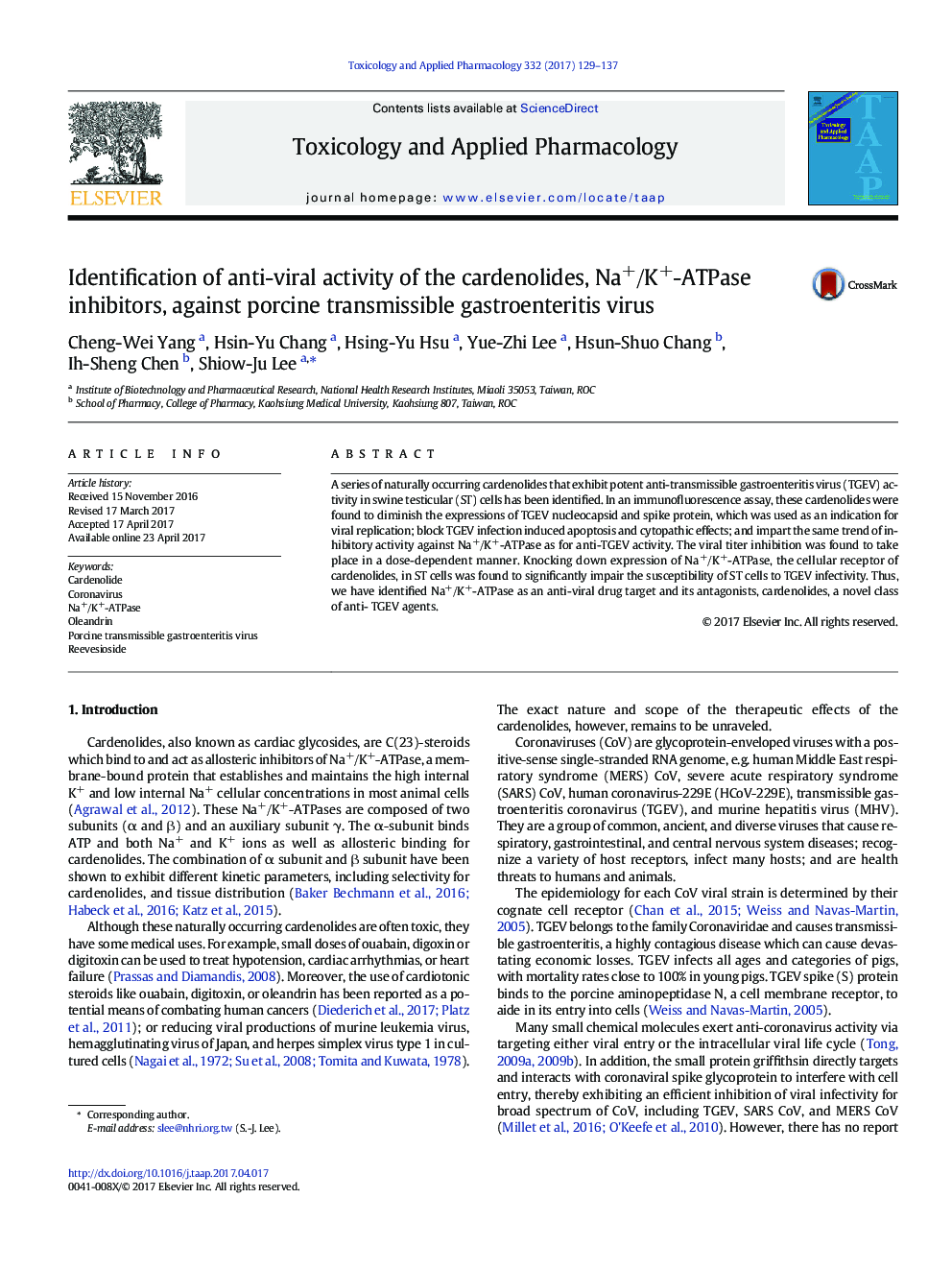| Article ID | Journal | Published Year | Pages | File Type |
|---|---|---|---|---|
| 5558399 | Toxicology and Applied Pharmacology | 2017 | 9 Pages |
â¢Cardenolides were identified as a novel class of anti-TGEV agents.â¢Cardenolides diminished TGEV replication/viral titers in a dose dependent manner.â¢Cardenolides blocked TGEV infection induced apoptosis and cytopathic effect.â¢These cardenolides imparted the same trend of inhibitory activity for Na+/K+-ATPase.â¢Na+/K+-ATPase was identified as an anti-viral drug target.
A series of naturally occurring cardenolides that exhibit potent anti-transmissible gastroenteritis virus (TGEV) activity in swine testicular (ST) cells has been identified. In an immunofluorescence assay, these cardenolides were found to diminish the expressions of TGEV nucleocapsid and spike protein, which was used as an indication for viral replication; block TGEV infection induced apoptosis and cytopathic effects; and impart the same trend of inhibitory activity against Na+/K+-ATPase as for anti-TGEV activity. The viral titer inhibition was found to take place in a dose-dependent manner. Knocking down expression of Na+/K+-ATPase, the cellular receptor of cardenolides, in ST cells was found to significantly impair the susceptibility of ST cells to TGEV infectivity. Thus, we have identified Na+/K+-ATPase as an anti-viral drug target and its antagonists, cardenolides, a novel class of anti- TGEV agents.
Graphical abstractDownload high-res image (330KB)Download full-size image
